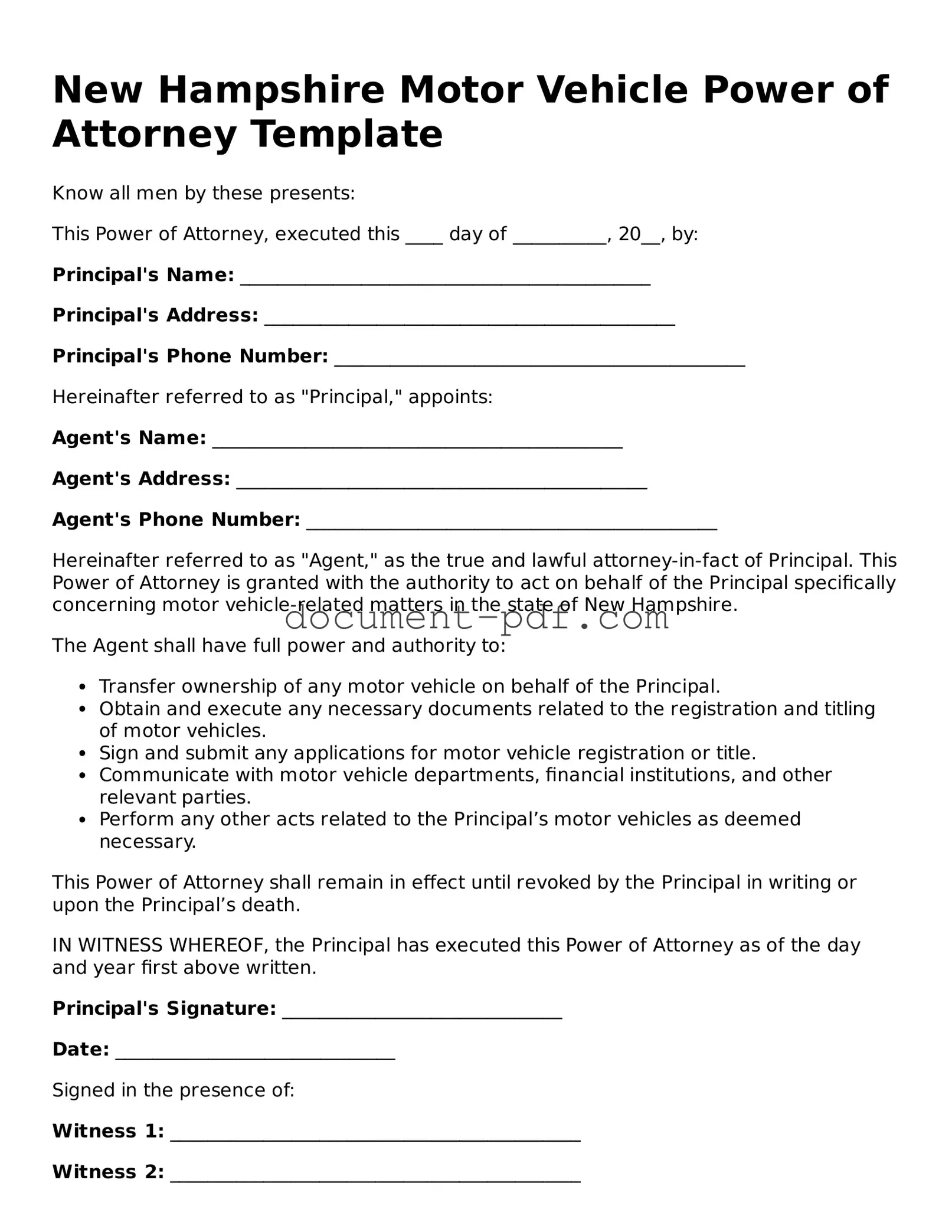Attorney-Verified New Hampshire Motor Vehicle Power of Attorney Template
The New Hampshire Motor Vehicle Power of Attorney form is a legal document that allows an individual to designate another person to act on their behalf in matters related to motor vehicle transactions. This form can be used for tasks such as registering a vehicle, transferring ownership, or obtaining titles. Understanding the importance of this document can facilitate smoother vehicle-related processes.
To fill out the form, click the button below.
Access Motor Vehicle Power of Attorney Editor Here

Attorney-Verified New Hampshire Motor Vehicle Power of Attorney Template
Access Motor Vehicle Power of Attorney Editor Here
Finish the form without slowing down
Edit your Motor Vehicle Power of Attorney online and download the finished file.
Access Motor Vehicle Power of Attorney Editor Here
or
Click for PDF Form
